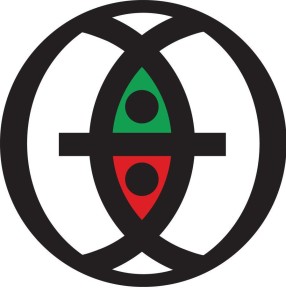OUR HISTORY
Founded by Cleo Manago in 1989, Black Men’s Xchange (BMX) is the nation’s oldest and largest community-based movement devoted to promoting healthy self-concept and behavior, leadership, critical thinking and cultural affirmation among same gender loving (SGL), gay- identifying and bisexual African-descended males and allies.
Black Men’s Xchange (BMX) is the first organization for same gender loving (SGL), and bisexual African-descended males to actually locate itself geographically within Black communities. Black Men’s Xchange (BMX) conducts activities that promote constructive leadership, decision making, a healthy life-style and social-justice.
OUR MISSION
The Black Men’s Xchange, is a human rights, educational, anti-oppression and advocacy organization dedicated to dismantling barriers to the well-being; dignity; self-respect and protection; responsive public-policy and the prevention of health threats to same gender loving (SGL), gay-identifying, non-gay identifying and bisexual men of African descent. Founded in 1989, BMX-National is the largest and oldest National Black organization serving these populations in the United States and was the first such organization to be located geographically within Black communities.
As an organization for healing and empowerment, The Black Men’s Xchange conducts activities that promote a healthy self-concept, constructive decision making skills, cultural affirmation and critical consciousness among Same Gender Loving (SGL) and bisexual African descendant-males. BMX affirms and educates SGL and bisexual Black Men while providing the tools for self-determination, community, responsibility, self-actualization, and the prevention of health threats.
Same-gender-loving, or SGL, a term coined for African Americans created by activist Cleo Manago, is a description for homosexuals and bisexuals, particularly in the African American community.
The term was created in 1990 as a [Black] culturally affirming homosexual identity. SGL was adapted as an Afrocentric alternative to what are deemed Eurocentric homosexual identities (e.g. gay and lesbian) which do not culturally affirm or engage the history and cultures of people of African descent. Specifically, the term SGL affirms Black homosexual and bisexual men and women through its African American conceptual origins, African inspired iconography, philosophy, symbols, principles, and values.
The term SGL usually has broad, important and positive personal, social, and political purposes and consequences. SGL is anti-hate and anti-anti-Black.
In a 2004 study of African American men, most of who were recruited from black gay organizations, 12% identified as same-gender-loving, while 53% identified as gay. Men attending Black Gay Pride Festivals in nine U.S. cities in 2000 responded similarly, with 10% identifying as same-gender-loving, 66% as gay, and 14% as bisexual.[5] Because of selection the results of the studies are unsurprising. Recent studies indicate that African-American disadvantaged youths are less likely than Euro-American youths to self-label as gay male, lesbian, or transgender youths. While these studies exhibit an expected outcome, that is, going to an organization or event that is labeled and marketed as gay would yield a high correlation between participants and a gay identity such studies also illustrate the need for increased study and location of the organizations and activities that cater to same-gender loving people.
BMX National Black is the United States of America’s oldest and largest community-based movement devoted to promoting healthy self-concept and behavior, cultural affirmation and critical consciousness among same-gender loving (SGL), gay-identifying and bisexual African-descended males and allies. It was reported, for instance, that in 1990 and 2000 the Census allowed same-sex cohabiting couples to identify themselves as “unmarried partners”. It is likely that many of the individuals in these same-sex couples would identify as “gay,” “lesbian,” and/or “same-gender-loving”.
The sgl symbol, the bawabisi is inspired by Nigerian Nsibidi script and West African Adrinkra symbols. The two facing semi-circles represent unity and love. The figure has been split symmetrically in half to suggest parts of a whole that mirrors each other. Dots are often used in Adinkra symbols to represent commitment and pluralism. The split and dots, with the addition of color, suggest the concept of gender. The circle encompassing the figure reinforces the idea of connectedness despite duality, suggesting the idea of two-spirited.

